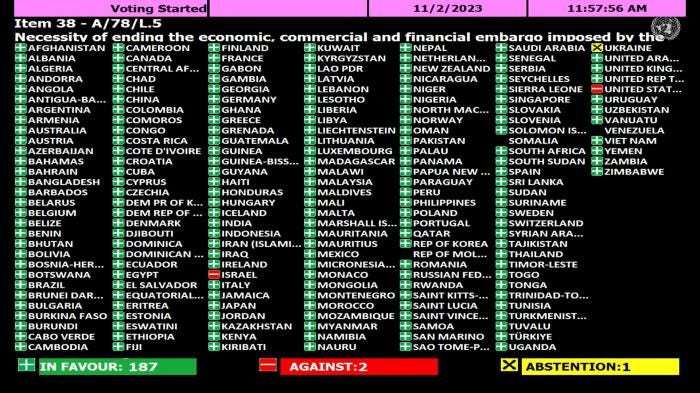By a vote of 187-2, with one abstention, the General Assembly of the United Nations on November 2, 2023, voted in favor of the Cuban resolution, “Necessity of ending the economic, commercial and financial blockade imposed by the United States of America against Cuba.” The USA and Israel voted against the resolution, and Ukraine abstained. The UN body has condemned since 1992 the U.S. unilateral blockade, imposed for more than six decades against the Caribbean Island nation.
The Cuban report against the blockade
The Cuban Ministry of Foreign Affairs submitted a “Report against the blockade” in support of the resolution. The report covers the damage caused by the U.S. policy during the period between March 1, 2022, and February 28, 2023. It notes that the period was characterized by the continuous and deliberate application of measures of extreme pressure installed by the government of Donald Trump, and further noting that the government of Joseph Biden has been incapable of form…



